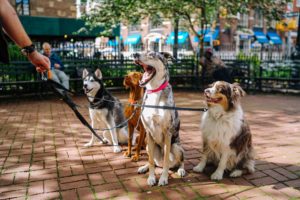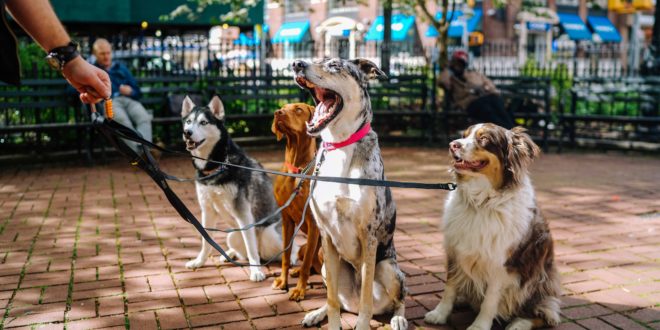 As a dog lover, you deserve a holiday, too, and part of ensuring your time away from home is relaxing, is knowing your pet pooch is being well cared for. While all kennels must be registered with the appropriate authorities, there’s so much more you need to check out. Here’s the low-down on what to look for and what questions to ask when sussing out boarding kennels for your much-loved pet.
As a dog lover, you deserve a holiday, too, and part of ensuring your time away from home is relaxing, is knowing your pet pooch is being well cared for. While all kennels must be registered with the appropriate authorities, there’s so much more you need to check out. Here’s the low-down on what to look for and what questions to ask when sussing out boarding kennels for your much-loved pet.
Housing
The kennel accommodation you choose for your dog should reflect the type of housing you give your pet at home. House dogs won’t be happy in outdoor kennels just as dogs used to living outdoors won’t enjoy being inside 24/7. When you talk to a potential kennel owner, ask where your dog will be living during its stay. Ask about bedding too – can your dog sleep on its favourite rug or is the bedding provided by the kennel the only option? Don’t be afraid to ask how often the bedding is laundered and if it is provided, if it is fresh for each incoming dog. If bedding is provided, take a look at it. Chewed bedding is a sign of a stressed dog.
Be sure to ask if it’s possible for your dog to have its own private enclosure if that’s what it’s used to, and if you have two or more dogs going into kennels, check out if they can be socially housed in one enclosure so they don’t pine for each other. If your pet is a house dog, a good kennel is one that provides some furniture for your pooch to laze on. The best kennels provide dogs with chairs and sofas in their enclosures. Temperature is important for a dog’s well-being, too. Ask if the kennel has heating and cooling available (a good kennel will use heat pumps if dogs are kept indoors), and plenty of bedding and covered space if kennels are outside.
Diet
Check out a kennel’s feeding policy to see if it suits your wishes. Some kennels insist on providing dogs in their care with their own brand of food (in which case ask if the dogs receive both meat and biscuits), while others may ask you to bring your dog’s food with you when you check in your pet. If your dog is to have a special diet, does the kennel have a good reputation for managing this?
Exercise
While most kennels have an enclosed space where dogs can roam freely, many kennels go the extra mile and take dogs walking 2-3 times a day. Be sure to ask if your dog will be safe from traffic and other dogs when out walking. If you have a timid or ageing pooch, what care will be taken to ensure it is not bothered by more boisterous dogs? Check exercise enclosures to see if they have stimulating toys for the animals (balls etc.) and if you can’t see any, ask if they exist. Exercise is a stress buster for animals, and if your dog is getting plenty of playing and walking time, it will be happier in your absence.
Health
Find out about your potential kennel’s relationship with their preferred vet. Is the vet on call day and night? Will the kennel contact you first before they seek treatment for your dog? A reputable kennel will always insist on seeing proof that your dog has been vaccinated for Parovirus and Kennel Cough – if they don’t ask, you should be concerned for your pet’s welfare.
With so many aspects of kennelling to consider, always plan to visit two or three establishments prior to deciding which you prefer. Check on-line reviews, and ask your local vet for recommendations. Ask in dog-walking circles for suggestions but always make your own decision by asking the questions you need to. A kennel owner with nothing to hide will welcome your enquiries.









sue diggle - 6 years ago
Also a good idea to have a guardian for your dog in case the unthinkable happens and it needs urgent and expensive medical attention